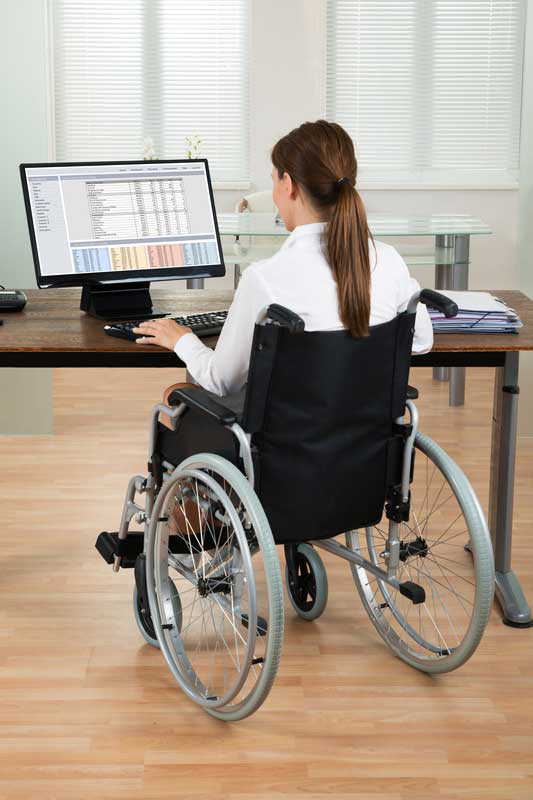Treatment concepts for disabled patients
The improvement in dental care for people with mental or physical disabilities is a field in which Clinic Director Profesor Invitado (Univ. Sevilla) Dr Dr Winand Olivier MSc. has been actively participating for many years. The treatment of patients such as these often presents insurmountable problems for many dental practices as the necessary framework conditions for suitable treatment cannot be provided.
In addition to accessible facilities, in our dental clinic we adapt to the patient’s individual situation and shape our treatment concept accordingly. It is important to accept different treatment situations, for example if a patient is suffering from a considerable level of anxiety or cannot open their mouth for long enough or wide enough. For patients with physical limitations, treatment in a dentist’s chair is often not possible.
Through collaboration with experienced anaesthetists and our own surgical department with a ward, treatments at the Dinslaken dental clinic are able to be carried out under general anaesthetic. It is also common for dentures to be required that are easy to handle and to maintain and can be prepared in just a few sessions. The in-house dental laboratory and the direct connection to the Evangelical hospital are a real advantage here and ensure treatment with the greatest possible level of safety is achieved.

Profesor Invitado (Univ. Sevilla) Dr Dr Winand Olivier, MSc. not only works in his clinic but also collaborates academically on dental care for disabled people. He regularly speaks on the subject at national and international conferences.
As part of his teaching work at the Hungarian University of Conductive Education at the Petö Institute, he shows his students the particular opportunities presented by the proper dental care of disabled children and adults.
The method known as “conductive education” was founded in the 1940s by Hungarian Neurologist and Educator Dr András Petö. It is the combination of teaching and treatment and describes a holistic and complex development concept for the mental and physical rehabilitation of mostly severely disabled children. The focus is not on a person’s disability but rather on their personality. The professional of conductor (conducere = bringing together) created by Dr Petö was recognised by the Hungarian state in 1963. The study programme is taught at the University of Conductive Education at the Petö Institute in Budapest. Patrons of the institute include former Federal Chancellors Gerhard Schröder and Hans-Dietrich Genscher. Lady Diana was also a patron until her death in 1997.
